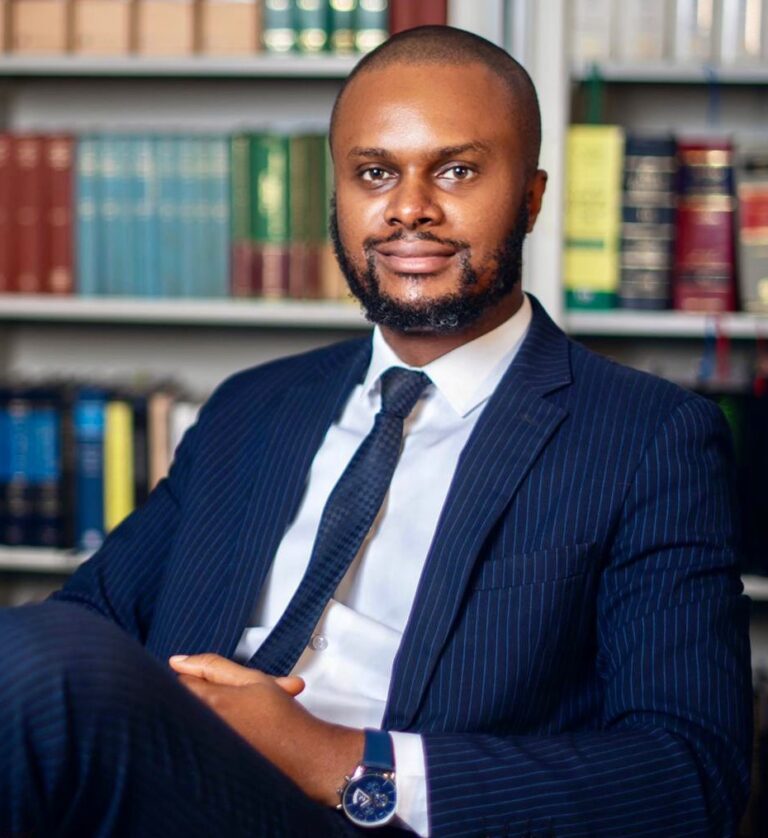The Community Court of Justice of the Economic Community of West African States (ECOWAS) will deliver its verdict on October 30, 2023 in a suit filed by Media Rights Agenda (MRA) seeking to compel the Federal Government of Nigeria to properly investigate the unresolved killings of 11 journalists, who were murdered over a period of two decades, identify and prosecute their killers.
A three-member panel of the Court, sitting at a virtual session in Abuja and presided over by Justice Gberi-be Ouattara, adjourned the case for judgment on May 19, 2023 after hearing arguments from the parties in support of and opposition to a Preliminary Objection brought by the Nigerian Government as well as the submissions of both parties on the substantive issues in the suit in which MRA is asking the court to award N10 million as compensation to each of the families of the journalists who were killed between 1998 and 2019.
The deceased journalists, over whom MRA filed the suit on August 16, 2021, include: Mr. Tunde Oladepo, Bureau Chief of The Guardian newspaper’s Ogun State office, killed in Abeokuta on February 26, 1998 by gunmen who entered his home early in the morning on that day and shot him dead in the presence of his wife and two young children; Mr. Okezie Amauben, publisher of Newsservice magazine, reportedly arbitrarily shot and killed by a police officer in Enugu on September 2, 1998; Mr. Fidelis Ikwuebe, a freelance journalist for The Guardian newspaper, who was abducted and murdered on April 18, 1999 while covering violent clashes between the Aguleri and Umuleri communities in Anambra State; Mr. Sam Nimfa-Jan, a journalist with Details magazine in Jos, Plateau State, who was killed in Kafanchan, Kaduna State, on May 27, 1999 while covering riots between Hausa Fulani and Zangon-Kataf groups and his body was found with arrows protruding from his back; and Mr. Samson Boyi, a photojournalist with the Adamawa State-owned newspaper, The Scope, who was killed by armed men on November 5, 1999 while on assignment to cover a visit by the then State governor, Mr. Boni Haruna, to the neighbouring Bauchi State.
The others are Mr. Bayo Ohu, then an assistant news editor with The Guardian newspaper, shot by armed men in his home in Lagos on September 20, 2009; Mr. Nathan Dabak, deputy editor, and Mr. Sunday Gyang Bwede, reporter, both with the Light Bearer, a monthly newspaper owned by the Church of Christ in Nigeria, who were attacked and killed by a mob in Jos on April 24, 2010, while on a reporting assignment; Mr. Zakariya Isa, a reporter and cameraman with the Nigerian Television Authority (NTA), killed on October 22, 2011 and for which Boko Haram reportedly claimed responsibility when its spokesman, Abul Qada, was quoted as saying that the militants killed him “because he was spying on them for Nigerian security authorities”; Mr. Enenche Akogwu, a reporter and camera operator with Channels Television, killed in Kano on January 20, 2012 by gunmen suspected to be Boko Haram members; and Mr. Precious Owolabi, a National Youth Service Corps (NYSC) member serving his primary assignment as a reporter with Channels Television, who was shot and killed in Abuja on July 22, 2019 while covering a protest by members of the Islamic Movement of Nigeria that had resulted in a confrontation with the Nigerian Police.
Besides the monetary claim for damages, MRA is also seeking, among other things:
· A declaration that the killing of the 11 journalists is a violation of their fundamental right to life as guaranteed by Section 33 of the 1999 Constitution, as amended; Article 4 of the African Charter on Human and Peoples’ Rights (ACHPR); Article 3 of the Universal Declaration of Human Rights (UDHR) and Article 6(1) of the International Covenant on Civil and Political Rights (ICCPR);
· A declaration that the killing of the 11 journalists while they were carrying out their professional duties or under circumstances relating to the discharge of their professional duties is a violation of their rights to freedom of expression and the press as guaranteed by Section 39 of the Constitution, Article 9 of the ACHPR, Article 19 of the UDHR and Article 19(2) of the ICCPR;
· A declaration that the failure of the Federal Government to adopt effective measures to protect and guarantee the safety of the 11 journalists pursuant to Article 66(2)(c) of the Revised ECOWAS Treaty, 1993 and Principle 20 of the Declaration of Principles on Freedom of Expression and Access to Information in Africa, amounts to a breach of the obligation imposed on the Government by the ACHPR and the Revised ECOWAS Treaty;
· A declaration that the Government has an obligation under Sections 33 and 39 of the Constitution, Articles 4 and 9 of the ACHPR; Principle 20 of the Declaration of Principles, adopted by the African Commission on Human and Peoples’ Rights; Article 2(3) of ICCPR, and Article 66(2)(c) of the Revised ECOWAS Treaty to carry out effective and impartial investigations, as well as to prosecute and punish the perpetrators of attacks on journalists in Nigeria;
· A declaration that the failure of the Government to take effective legal and other measures to adequately investigate, prosecute and punish perpetrators of attacks against the 11 journalists and ensure that the victims’ families have access to effective remedies, is a breach of the obligation imposed on the Government under Article 66(2) of revised ECOWAS Treaty, Article 2(3) of the ICCPR and the ACHPR;
· An order directing the Government to take measures to prevent attacks on journalists and other media workers as well as an order directing it to immediately carry out effective, transparent and impartial investigations into the killing of the journalists; and
· An order directing the Government to identify, prosecute and punish the perpetrators of the attacks against the journalists and other media practitioners, and ensure that victims have access to effective remedies.
At the May 19, 2023 hearing, MRA was represented by Mr.Abuja-based human rights lawyer, Darlington Onyekwere, leading Mr. Monday Arunsi, a Legal Officer at Media Rights Agenda, while Mr. Solomon Ogunlowo, a Principal State Counsel at the Federal Ministry of Justice, represented the Nigerian Government.
Mr. Ogunlowo first moved the Government’s application, filed on November 3, 2021, seeking to regularize the processes filed on behalf of the Government as the processes were filed outside the prescribed period.
He asked the court for an order for the extension of time within which the Government may file its preliminary objection, statement of defence and statement of facts and pleaq in law in opposition to MRA’s application and another order deeming these processes, which the Government has filed, to have been properly filed and served.
He referred the court to an affidavit in support of the motion, deposed to by Mr. Lawrence Ilop, a litigation officer at the Federal Ministry of Justice, who claimed that due to the allegations contained in MRA’s suit, the Ministry had to carefully and thoroughly investigate the facts, which caused the delay in the preparation and filing of the Government’s processes.
Following the grant of the application of the application for an extension of time by the Court, he then addressed the Court on the Government’s preliminary objection to the suit, which was also filed on November 3, 2021 and urged the Court to decline jurisdiction and hold that MRA’s suit is inadmissible.
Challenging the competence and admissibility of MRA’s suit, the Government contended that the Court lacked jurisdiction in the matter occasioned by MRA’s lack of standing to file and maintain the suit.
According to him, MRA is the not victim of the human rights allegedly violated and which it is seeking to protect through the suit, no victim has been properly identified and made a party to the suit and MRA did not suffer any wrong or injury directly or indirectly on which basis the application can be maintained.
Responding, Mr. Onyekwere told the court that he had filed a written address on behalf of MRA on December 10, 2021 in opposition to the preliminary objection saying he would adopt the written address. He urged the Court to dismiss the preliminary objection and proceed to determine the substantive suit on the merits.
He contended that the victims had been properly identified and could not have been made parties to the suit, contrary to the repeated arguments of the Government.
Mr. Onyekwere argued that States are not only prohibited from taking life outside the permissible circumstances allowed by law, but that they also have a positive obligation to act to prevent the loss of life.
Observing that MRA’s case was largely predicated on the African Charter, which the Nigerian Supreme Court has held in Abacha & Ors v. Fawehinmi [2001] 1 CHR 20to supersede domestic laws, he stressed that the Government cannot rely on domestic laws, as it is has sought to do, to escape liability for the human rights violations complained of in the case.
The Court ruled that it would consider the preliminary objection along with the substantive suit so that a composite decision will be given on the matter. It then invited the lawyers to the parties to address the Court on the substantive matter.
Mr. Onyekwere then adopted MRA’s originating application, filed on August 16, 2021 as well as the MRA’s Reply to the Defence and Reply to the Government’s Plea in Law, which was filed on January 28, 2022. He urged the Court to grant the reliefs sought by MRA.
Mr. Ogunlowo similarly adopted the Government’s Statement of Defence and Statement of Facts and Pleas in Law, filed on November 3, 2021. He urged the Court to dismiss the substantive suit on the merits.
After listening to the arguments of the lawyers to both parties, the Court adjourned the suit to October 30, 2023 for judgment.







